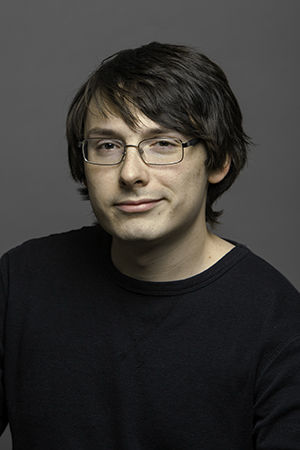Boston on Trial: Conscience and Capital Punishment

John Hess is a senior political science major. Contact him at [email protected].
Last week Dzhokhar Tsarnaev was convicted of the 2013 Boston Marathon Bombing, which left three people dead and some 260 wounded. Tuesday begins the sentencing portion of the trial, in which federal prosecutors will be arguing in favor of the death penalty. In the aftermath of this tragedy, as has become custom, many Americans are trying to outdo one another in their sympathetic and patriotic calls for Tsarnaev’s blood. A columnist here on Kentwired even remarked that the young Chechen-American “deserves the worst punishment that’s available,” of course meaning capital punishment.
The above-mentioned columnist also said that she “can’t imagine what the families affected by the bombings feel.” Luckily for us, we don’t have to imagine. In an open letter published on April 17 in the Boston Globe, Bill and Denise Richards called on the prosecutor to not seek the death penalty for Tsarnaev. The Richards’ son Martin was killed in the bombing. Their daughter will carry the wounds she received that day for the rest of her life. The family doesn’t want Tsarnaev to die, not necessarily because they think he should live, but because they don’t want appeals. They want to start healing. They are living proof that the “justice for the families” narrative that we are sold following each and every national tragedy is a convenient fiction. It is tempting to believe that the act of healing is so simple, that we must pay a blood-price to restore balance to the world. This is just not true.
A very revealing poll was recently conducted by a Boston-area NPR affiliate. This poll shows that over the past month support for the death penalty in the Tsarnaev case has dropped precipitously among Bostonians. While a majority of Americans want Tsarnaev to face the death penalty, actual Bostonians oppose the death penalty by a 2:1 margin. The stalwart morality and mercy in the face of adversity that this demonstrates gives added weight to the #BostonStrong message. However, this poll reveals something even more significant. The current level of Bostonian support for capital punishment in the Tsarnaev case now coincides with their approval rates for the death penalty in general. The steep decline from the post-bombing uproar to the current post-conviction levels shows the death penalty for what it is. It is not the grim duty of a civilized society nor is it connected in any way with justice. It is born of a knee-jerk emotional reaction. The people of Boston have returned to their senses, and so must we.
“But surely,” one might say, “if any crime deserves the death penalty it’s this one!”
And I would agree. I will not challenge the seriousness of the crimes committed by the Tsarnaev brothers. I will, however, point out that no event occurs in a vacuum. The existence of “justified” uses of the death penalty have for a long time served to rationalize capital punishment in general. While the death penalty remains on the table it will not be reserved for the Tsarnaevs of the world, even if I may disagree with it in those cases, too. Research has shown that as many as 340 death row inmates could have been exonerated since 1973, more than twice the number that actually were exonerated. These are people who shouldn’t have been convicted of a crime at all. Furthermore, it is well-documented that the death penalty is administered in a racially discriminatory way. The simple fact of the matter is that while the death penalty continues, innocent people will die.
Shortly before his arrest, Tsarnaev scrawled a message on the side of the boat in which he hid. This message linked the Boston Bombing to the actions of the U.S. government in Muslim countries, saying “Stop killing our innocent people, we will stop.”
Many Americans scoffed at this obviously ridiculous notion that violence could be solved with violence, that there can be a legitimate logic for murder. We saw it for what it was: a cruel, violent and retrograde view of the world that could only multiply suffering, not end it. It was very easy to see this in the context of fundamentalist Islam, with its foreign, arcane and archaic values.
It is much easier to do this than subject ourselves to the same scrutiny.
The notion of washing away blood with blood is not unique to Islam or even to religion in general. Identified as it is with Old Testament morality, I fear that the “eye for an eye” impulse is much older. It is the impulse that leads a child or an animal, injured, to strike back violently, thoughtlessly. This doesn’t make it logical, and it certainly doesn’t make it right. It can and must be unlearned, as the people of Boston have unlearned it. “An eye for an eye” is not the morality of the Bible or the courts. It is the morality of the playground. It is a child’s solution to an adult’s problem. It is the only recourse of those so completely overwhelmed with the evils of this world that they must invent an Evil to attribute them to. It cannot heal or hope or build. It can only consume us.
And so in light of this, I ask you not to support the death penalty for Dzhokhar Tsarnaev or anyone else. I ask you instead to look deep within yourself for that animal impulse that we all possess and to think it out of existence. Crush it. Master it. And move on.
Contact John Hess [email protected].


